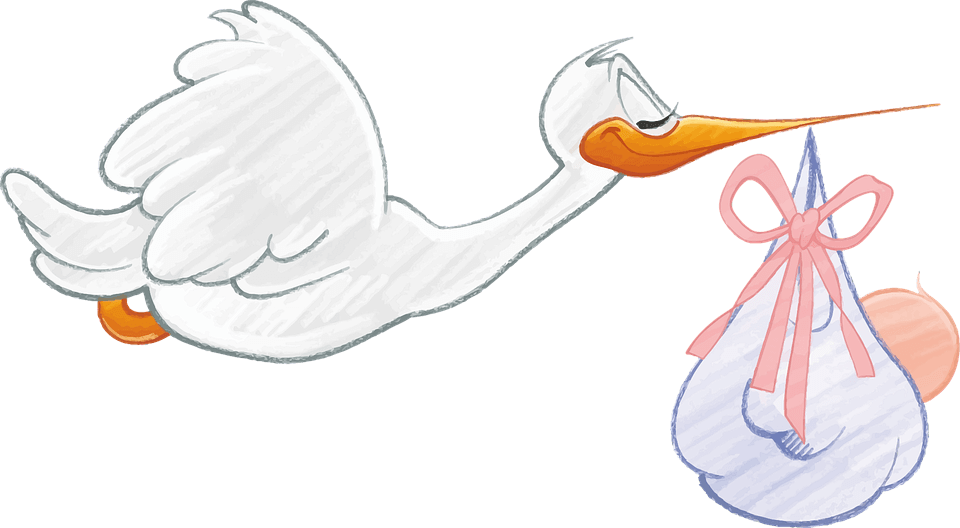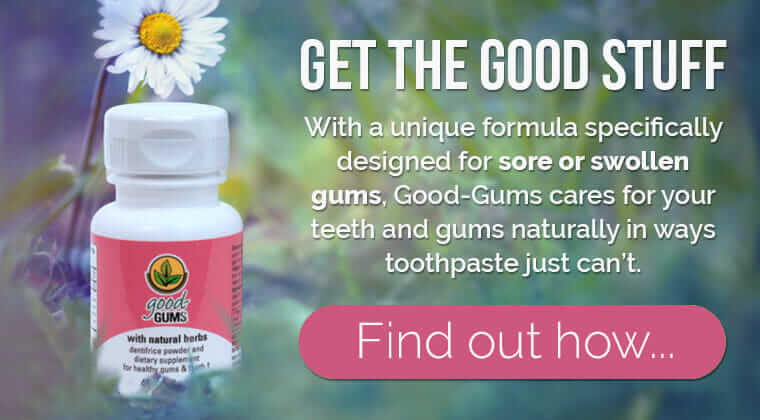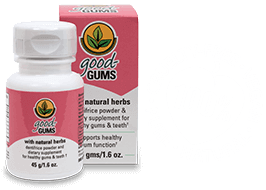Preventative and Curative Tips for Dental Health during Pregnancy

Although there is an abundance of information on how to look after the physical body during pregnancy and breastfeeding, detailed information and advice about preventative and curative measures for maintaining good dental health, particularly through diet and nutrition, are pretty limited. As we’ve mentioned in many of our previous articles, the state of our teeth and gums can be the first sign of the body alerting us to a problem. Many conventional dentists insist that poor oral hygiene is the main cause of tooth decay and gum problems, and often dismiss the bigger correlation between poor nutrition and declining dental health.
During pregnancy, it becomes more obvious that getting adequate nutrition is absolutely essential for maintaining optimal oral health. And here’s why…
Why does pregnancy create dental problems?
During pregnancy, the risk of tooth decay and gum disease is increased due to hormonal changes and an increase in blood flow that affects the body’s ability to cope with plaque – the bacteria which collects where the teeth and gums meet. This vulnerability to plaque leads to inflammation of the gum tissues, which, if not treated, can progress into a more serious infection such as periodontitis.
Unfortunately, the risk of teeth and gum problems continue during breastfeeding. Breastfeeding mothers are at a higher risk of tooth decay because her baby demands more calcium. This results in the mother losing five percent of their bone mass, and the baby’s need for calcium increases her susceptibility to tooth decay.

Pre-Pregnancy
If possible, lifestyle choices towards better dental health should start during the family planning stage at the very least.
Firstly, getting regular dentist check-ups and dental cleanings can help. This will give you a barometer of what’s really going on with your teeth and if you are showing any signs of decay or early stages of gum disease, you can begin taking the necessary precautions to stop it progressing any further. If you need any serious dental work, we recommend getting it done before you become pregnant.
As amalgam fillings are being phased out due to evidence that they are toxic to the body, many are opting for less toxic, non-mercury composite fillings, which are not only safer and healthier for the body but are also tooth-colored so your fillings aren’t obvious to anyone – bonus!
If you are getting amalgam fillings (mercury fillings) extracted, consider seeing a holistic dentist who can advise on how to flush the body of toxins e.g. high doses of vitamin C, herbal supplements or homeopathic remedies. Getting adequate amounts of vitamin D is also extremely important during pregnancy, as this not only assists your body in absorbing calcium, which is essential for your teeth and bones, but has also been shown to increase fertility!
Pregnancy
The first three months of pregnancy can take a huge toll on a woman’s body as the nutrients begin redirecting from the mother’s body to the unborn baby. While brushing your teeth two to three times a day is beneficial, how you brush and floss becomes of utmost importance! Even if your last dental check-up got the A-OK, pregnancy hormones can quickly and dramatically alter the state of your dental health. So taking preventative measures during pregnancy is paramount.
Brushing and flossing tips:
- Use a soft toothbrush, especially if you have sore or bleeding gums
- If it is not possible to brush the teeth, rinse the mouth with water after eating
- If you suffer from morning sickness, mix 1 tsp of baking soda with 8 oz of water and rinse your mouth. Wait an hour to brush the teeth as the acids from your stomach could further damage the teeth
- Floss at least once a day – consider purchasing a water flosser as these can help reduce the effects of gum disease
- Use normal dental floss and your water flosser to help remove food particles that contribute to teeth and gum problems (electric toothbrushes with an inbuilt water flosser are also available)
- Use a natural mouthwash such as Good-Gums tooth and gum powder to give essential nutrition to the teeth and gums.
- While oil pulling is considered safe during pregnancy, if you have amalgam fillings we recommend that you use wheat-grass juice instead of oil, as coconut or sesame oil could make the metals leach from the filling
- If you grind your teeth, ask your dentist about getting a night mouth guard made. This will protect your enamel from getting worn down by teeth-grinding
Even after maintaining good oral hygiene, problems with the teeth and gums can still persist during pregnancy and breastfeeding. This has to lead many people to ask the question – “What exactly is the root of tooth decay?”
The work of Ramiel Nagel expands on the work of Dr. Weston Price and provides answers to that very question. Nagel’s book Cure Tooth Decay is adding to the growing body of evidence that supports how nutrition can prevent and heal dental problems. Over-processed foods and soil depletion are the two main contenders when it comes to messing up the natural balance of our bodies, so we are no longer immune to cavities and gum problems.
“It is quite possible that the body is sacrificing the minerals in the teeth for use by the vital organs. Lack of adequate nutrition causes physical degeneration, and tooth decay is the result of physical degeneration.”
Ramiel Nagel – author of Cure Tooth Decay
So what are some of the dietary changes women can make?
First things first – limit your sugar intake! We all know the detrimental effects sugar can have on our oral health, but we’re not just talking about refined white sugars found in sweets and desserts, you’ve also got to watch out for those sneaky fruit sugars that also cause acid attacks to your tooth enamel.
But it’s not necessarily about eradicating sugars completely and going low-carb – it is actually not advisable to make radical changes during pregnancy. Yet, at the same time, we recommend that you consider researching and experimenting with consuming less sugar or using sugar substitutes that are safe during pregnancy. Highly refined sugars literally deplete the body of vitamins and minerals, which you need more than ever during pregnancy. Sweet potatoes, however, despite containing naturally occurring sugars, are an excellent source of beta-carotene and help replenish the body with vitamin A.
Sugar substitutes stevia and xylitol, which according to the FDA, are safe in moderation during pregnancy, have little calories and do not deplete the body of micro-nutrients. Vitamin K2 is another vitamin essential for aiding your body’s natural healing processes and keeping gum disease at bay. Foods rich in vitamin K2 include sauerkraut, egg yolks, organic grass-fed butter, natto (fermented soy) and cheese from grass-fed cows.
As we previously mentioned, getting adequate amounts of calcium is essential for tooth and bone health. Calcium is naturally found in a wide variety of foods and is best absorbed from yogurt, milk, and cheese.

Finally, homeopathic tissue salts offer a holistic way to protect and heal the teeth during pregnancy. Calcium fluoride and calcium phosphate are the two most common homeopathic remedies used to help strengthen and re-mineralize teeth. It is recommended to take them regularly, particularly if there are acute problems going on with your teeth and gums.
Naturally-occurring calcium fluoride (not be confused with the synthetic and highly toxic sodium fluoride found in toothpaste) helps to strengthen teeth and bones, as well as helping to soothe sore gums, toothache, sensitive teeth and teething in children. Calcium phosphate helps with issues that require high doses of calcium such as broken bones and growth spurts, and like calcium fluoride, also helps significantly to re-mineralize teeth. Tissue salts can be taken throughout pregnancy and breastfeeding and given to the infant or child.
Breastfeeding
If you are choosing to breastfeed, especially over a prolonged period of time, then we recommend that you continue to get regular dental check-ups, maintain a high standard of dental hygiene, eat a low sugar diet and consider taking tissue salts.
Fermented cod liver oil is a very beneficial supplement for both the mother and baby during breastfeeding as it is rich in omega-3 fatty acids and vitamin D. During the winter months it is especially important to get sufficient amounts of vitamin D when sunlight is limited. Vitamin D helps your body absorb calcium, which helps to keep your bones and tooth enamel strong.
The American Dental Association suggests that breastfeeding mothers are more likely to grind their teeth, due to physical and emotional tension during pregnancy, so using a mouth guard may be a good idea. Breastfeeding has not only been shown to decrease the chance of the child developing cavities but also helps promote the child’s tooth and jaw development.
What’s amazing about the woman’s body is that once breastfeeding has stopped, calcium is restored and your bones and teeth return stronger!
We strongly recommend using Good-Gums all-natural tooth and gum powder during pregnancy. Good-Gums is jam-packed full of essential vitamins and minerals which help fight infection and neutralize the acids and bacteria which cause tartar, plaque, cavities and weaken gums.
Our teeth and gums are as alive as any other vital organ in your body so it is crucial that throughout pregnancy and breastfeeding, extra care is taken to ensure diligent oral hygiene practice as well as proper nutrition.

Subscribe To Our Newsletter
Be the first to receive all our news, offers and natural oral health tips and articles.


